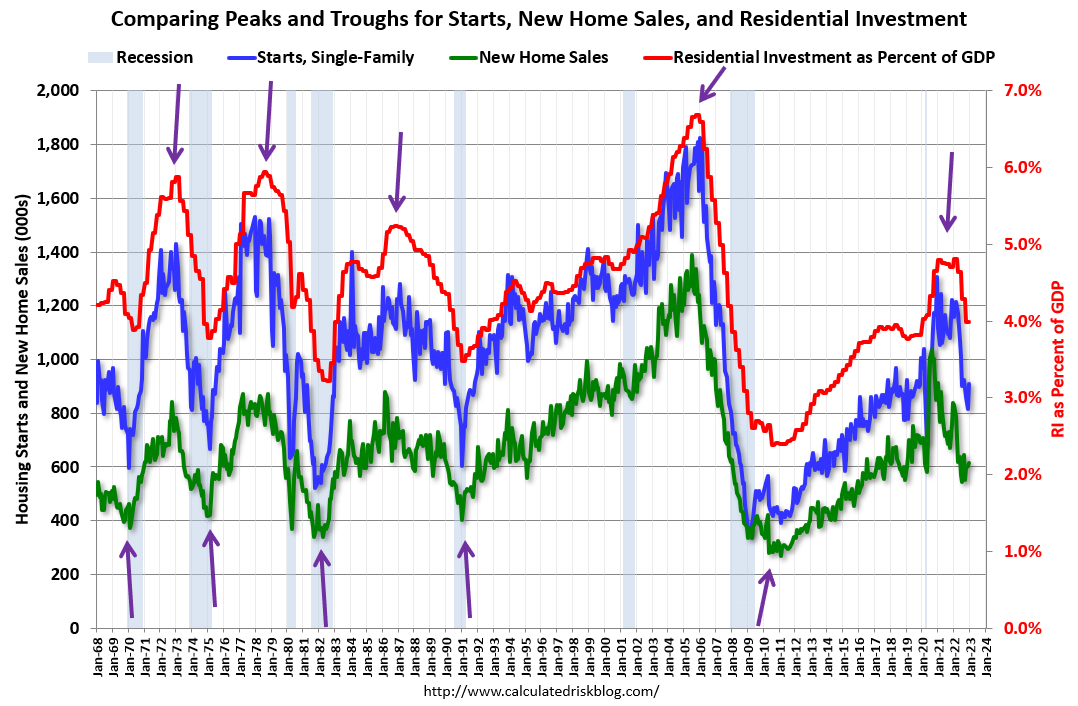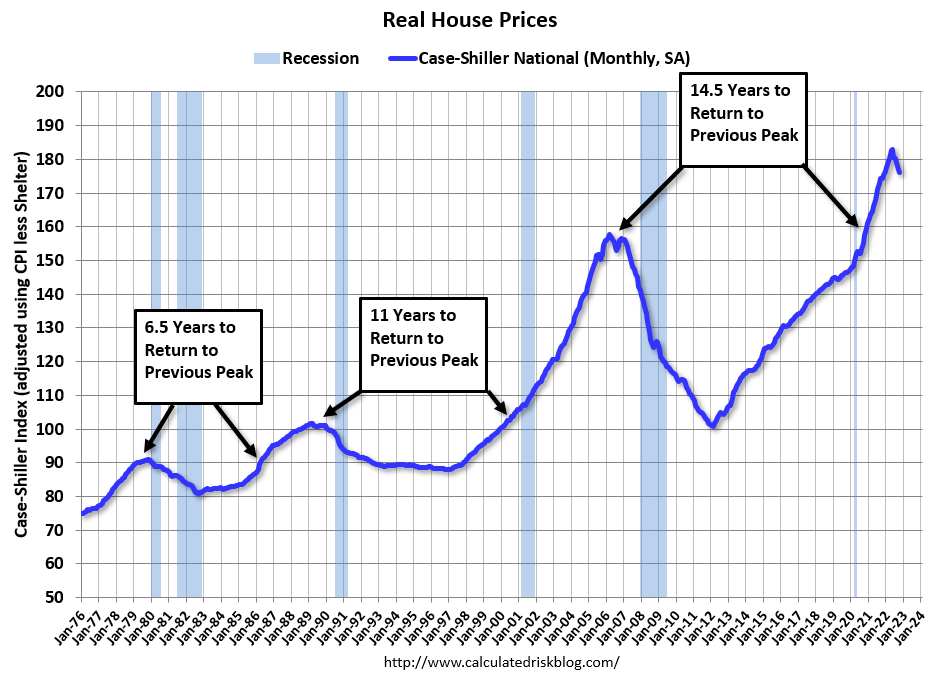A working paper from the National Bureau of Economic Research finds that ageing is the main cause: nearly 2m baby-boomers who tried early retirement over the past three years have taken a liking to it and arenot coming back.
Tuesday, January 31, 2023
2m Baby boomers more likely to stay retired if their house price increases
Friday, January 27, 2023
Housing Market Activity and Prices
Curiously, the price series (below) is much more slowly moving than the Activity series. And for the last three pricing cycles since 1968, it appears that the cycles are lengthening.
Estimating the costs of pollution with natural experiments
<iframe width="1172" height="659" src="https://www.youtube.com/embed/JLHXYTbSQZY" title="The Hidden Cost of Pollution" frameborder="0" allow="accelerometer; autoplay; clipboard-write; encrypted-media; gyroscope; picture-in-picture; web-share" allowfullscreen></iframe>
Thursday, January 26, 2023
Price of acquiring a company has just fallen
- Buyers took advantage of cheaper prices, with median deal multiples declining to 8.8x from a 14-year high of 11.1x.
Wednesday, January 25, 2023
Should we re-regulate Airlines or stop reading the NY Times?
Turns out that inflation-adjusted airfares were 60 percent lower in 2020 than in 1980. Indeed, flying is no longer a luxury. It’s cheap enough to allow most Americans to fly — by 2020, 87 percent of the U.S. population had taken a commercial airline trip. And low fares have cost us nothing in terms of safety: no major airline has been involved in an accident in the United States since 2009. ...What about service reliability? Suppose policymakers force an airline that cancels a flight to immediately provide a cash reimbursement to all affected passengers – as the European Union requires in many circumstances. All airlines, not just Southwest, scratch thousands of flights every year, sometimes due to human or equipment error — but mostly because of bad weather. If airlines are forced to incur all the financial risks of delayed flights, something else must give — back to amenities and/or fares.
Friday, January 20, 2023
First cousin marriage bans lead to higher incomes
The theory is right out of chapter 1: voluntary transactions create wealth because they move goods and services to higher-valued uses. In a kinship society (no first-cousin marriage bans), there are fewer people with whom to transact, and this means that income is lower.
Sunday, January 15, 2023
Incomes are growing, and inequality is falling
Real incomes are growing and progressive taxes (which tax the rich at higher rates) and transfer payments (from richer to poorer) are responsible. (From The Economist)
Monday, January 9, 2023
How do we create incentives for firms to train employees?
“there is evidence that non-compete clauses increase employee training and other forms of investment,”they dismiss its importance.
Sunday, January 8, 2023
Pay transparency laws shrink the Gender Gap by reducing male wages
...[Pay Transparency law] shrank the gender pay gap by 13%, but only because it curbed the wages of male employees. Studies of Britain’s gender-pay-gap law, which was implemented in 2018, have reached similar conclusions.Of course, the term "gender-pay-gap" refers to a statistical difference betweden what men and women are paid. It does not mean that men are paid more for the same work as women. See earlier post When are between group differences evidence of discrimination?



